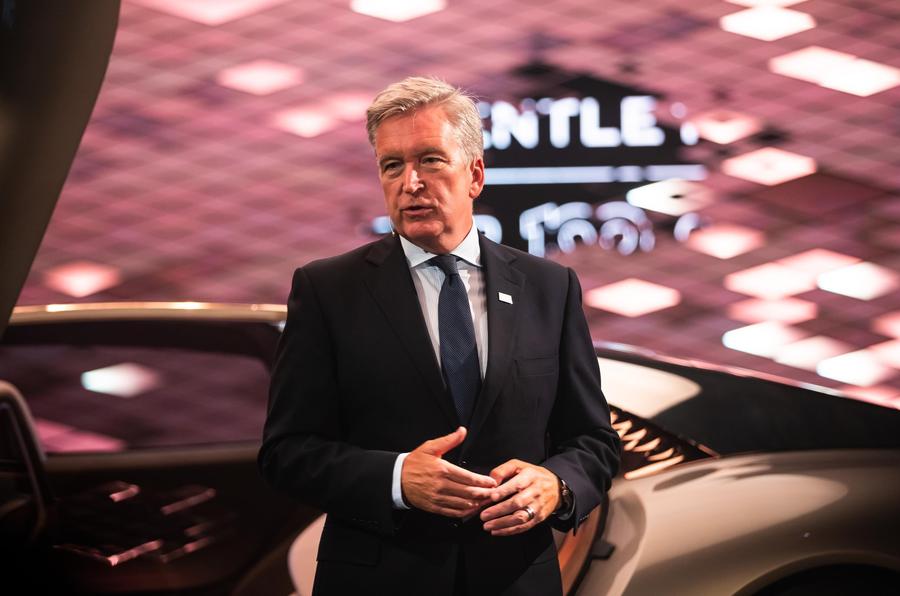The UK should become “a safe haven, the go-to place, for battery production”, Bentley chairman and CEO Adrian Hallmark has said.
Speaking at the Society of Motor Manufacturers and Traders’ (SMMT) first Global Trade Conference, Hallmark suggested that the UK’s existing trade deal with the European Union would mean petrol and diesel cars would still be more favourable to sell than battery-electric cars in 2027, just three years out from the UK’s ban of new ICE vehicles.
“A battery for an equivalent car is about three to five times the cost of the engine,” said Hallmark. “And because of those materials coming from all over the world, already difficult to source in Europe and then fully make in Europe or the UK, it puts a new challenge to us.”
Both the UK and the EU are required to ramp up the amount of local components in their vehicles by 2027, including the entire battery in any EV, and failure to meet the required threshold would incur a 10% tariff, threatening the value of assembling vehicles in Britain.
The UK’s first large-scale EV battery production facility isn’t due to open until 2023, and the picture is made more difficult by British manufacturers being “quite complicated”, according to Hallmark.
“We all have different sizes of cars in different price segments, different cell technologies, and the challenge is to try and find a common denominator,” he explained. “And we probably can’t. So it needs external investment and big players.
“Today we export a million engines more than we export cars. So why can’t that be the same with batteries? Make the UK a battery centre. And to do that, you need green energy.”
EV battery production currently causes higher CO2 emissions than that of combustion engines, although this is more than offset by their lifetime use.
Bentley has committed to carbon-neutrality by 2030, when it intends to only make EVs.
As well as addressing rules of origin, Hallmark suggested that the UK’s trading relationship with the EU could be streamlined. “From my point of view, we got Brexit done, but now let’s get the relationship working,” he said, adding that smoothing and digitalising the customs process, as well as making “the data exchange much more fluid and efficient” would make things easier.
“If we can get those things working, it reduces our admin burden, which isn’t killing us, but it would be nice to do less. But make it more predictable and more manageable.”





Add your comment